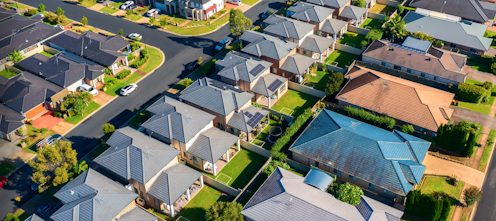How much did Chinese investors drive up Sydney home prices? It's less than you might think
- Written by Song Shi, Associate Professor School of Built Environment, University of Technology Sydney

When China cracked down on money leaving the country in 2017, some Sydney home prices fell 3%, while in other suburbs the restrictions had next to no impact.
This finding – from research Xunpeng Shi[1] and I recently published in the journal Housing Studies[2] – shows Chinese investors have had some effect on local house prices. However, our research also shows the impact has been much less – and less widespread – than many Australians[3] think.
We found the only Sydney suburbs in which Chinese buyers appeared to have had a strong impact on prices were those with large concentrations of Chinese residents.
Getting money out of China used to be easy
Australia’s rules make it harder for foreigners to buy Australian homes, among other things limiting purchases to new dwellings and vacant land[4].
But until 2017, it was fairly easy to get money out of China.
Among the channels commonly used were AliPay, WeChat, UnionPay, credit cards and underground banks specialising in foreign exchange and holding properties on behalf of Chinese citizens.
On December 30 2016, the People’s Bank of China published an order entitled Administrative Measures on Reporting for Large-Value Transactions and Suspicious Transactions[5], limiting foreign currency conversions to US$50,000 per person and explicitly banning the purchase of foreign properties.
It came into effect on July 1 2017.
Tighter controls made buying Sydney property harder
Before the order, in 2016, Chinese overseas direct foreign investment in Australia totalled US$11.5 billion.
By 2019 it had slid to US$2.4 billion[6].
A real estate agent specialising in the Sydney CBD high-end dwellings was quoted in 2020 as saying Chinese buyers dominated the market between 2013 and 2017, but bought only one or two[7] in 2018.
Our study used this rare natural experiment[8] to estimate the effect Chinese buyers had had on Sydney home prices.
We did this by comparing what happened to prices in the suburbs with a high concentration of Chinese owners to what happened in those with few Chinese owners.
To do so, we split Sydney’s 678 suburbs into “Chinese” and “non-Chinese”, based on their populations in the 2016 Census.
Prices fell 3% in these suburbs – with little impact elsewhere
We compared prices 18 months before and 18 months after the change, using a number of different cutoff points to define “Chinese” and “non-Chinese” suburbs.
We found China’s restrictions pushed down prices in what we defined as Sydney’s “Chinese” suburbs by around 3%. In contrast, the restrictions had next to no impact on prices in other suburbs.
This remained the case when we checked our results against the ten most “Chinese” suburbs identified by the publication Sydney Suburb Reviews[9]: Haymarket, Carlingford, Chippendale, Zetland, Chatswood, Ultimo, Eastwood, Rhodes, Burwood, and Hurstville.
It also remained the case when we took into account other changes in Australian foreign investment rules during the period.
Overall, Chinese buyers had a limited impact
Our findings have important implications. They suggest ongoing concerns[10] about Chinese capital and Chinese investors driving up Australian home prices and exacerbating affordability problems are overstated.
Foreign investment should be welcomed to the extent that it helps boost Australia’s housing supply. Our study found its effect on housing affordability is marginal and limited to particular suburbs.
Read more: Think curbing overseas migration will end the housing crisis? It won't – and we can't afford to do it[11]
References
- ^ Xunpeng Shi (www.australiachinarelations.org)
- ^ Housing Studies (www.tandfonline.com)
- ^ many Australians (www.australiachinarelations.org)
- ^ new dwellings and vacant land (www.canstar.com.au)
- ^ Administrative Measures on Reporting for Large-Value Transactions and Suspicious Transactions (www.cecc.gov)
- ^ US$2.4 billion (kpmg.com)
- ^ one or two (www.news.com.au)
- ^ natural experiment (www.britannica.com)
- ^ Sydney Suburb Reviews (sydneysuburbreviews.com)
- ^ ongoing concerns (www.theguardian.com)
- ^ Think curbing overseas migration will end the housing crisis? It won't – and we can't afford to do it (theconversation.com)
Authors: Song Shi, Associate Professor School of Built Environment, University of Technology Sydney










